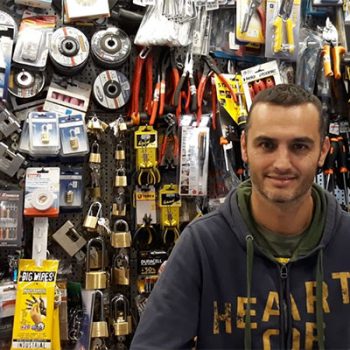Spending is up, but we have changed. Super informed and no longer loyal

Spending is rising once more: but consumers have changed. There are signs of recovery. In the first quarter of 2017, overall consumption by families recorded an increase over the previous quarter (+1.3%), higher than 1999, and an annual increase (+2.6%) higher than 2011.
Spending is rising once more, but consumers are very different after the crisis. Today they are super informed, no longer loyal to the point of sale, shrewd in their use of different market channels, attentive not only to price, but also enthusiasts of healthy, ethical and upmarket consumer items. A single non-variant: modern retailers (supermarkets, mass merchandisers, shopping centres, department stores and DIY superstores) remain the locations of choice where people can shop for anything from food to clothing, furniture, DIY and garden suppliers, perfume and cosmetics.
No longer loyal. 60.3% of Italians who shop for food at modern retailers are not loyal to the point of sale, nor to chain brands: they shop where it is most convenient for them. The proportion of non-loyal customers rises to 74.7% for clothing, footwear and accessories, and to 72.2% for furnishing, and the number remains high for DIY and gardening (64.2%), cosmetics, perfumes, personal care (63.2%), sportswear (59.9%) and housewares (58.6%).
Super informed. 31.7 million adult Italians have in the past year read product reviews on social media networks and blogs to decide whether or not to make a purchase (10.7 million do so regularly). Consumer become themselves a source of information, with 20.4 million Italians (6.2 million regularly) who have published personal comments or stories of their experiences with products, purchases and large retailers on websites or social media networks. The new consumers are capable users of both traditional and digital information channels, with 46.8 million Italians (29.7 million regularly) in the past year learning of promotions and offers from paper leaflets and 26.7 million (10.7 million regularly) from apps downloaded onto smartphones.
Shrewd in their use of different market channels. 30.5 million Italians (8.8 million regularly) in the past year have looked at or checked a product in a traditional store and then purchased it online. 19.6 million (5.4 million regularly) have ordered products online and then picked them up at a shop. 14.4 million (5.7 million regularly) have had their shopping delivered to their homes after ordering it on the telephone or online. And 46.6 million Italians (24.5 million regularly) have shopped in the traditional way, looking in shop windows and going into stores. These are indicators of a discerning combination of physical and virtual shopping that tears down the walls of stores and empowers the individual to evaluate and choose.
Large retailers satisfy all. Roaming and subjective, fleeting, shrewd, ready to take different approaches, the new consumer finds modern organised retail the point of reference for many reasons. First and foremost for convenience, considering that 91% of Italians (94.6% of low income families) consider it important to be able to do their shopping at these points of sale to maintain their quality of life (without the offers of larger retailers, 25.9% claim their quality of life would have crumbled in these years of crisis: here they found their “consumer welfare”).
The point of sale of the future according to Italians. The expectations Italians have for the future revolve around having large retailers offering new products and services at competitive prices in their stores (pharmaceuticals, fuel, insurance policies: according to 43.8%), personalized coupons for immediate discounts at the checkout (42.3%), trained and knowledgeable staff who help them understand and choose quickly (33.3%), faster and simpler methods of payment (29.2%), more flexible and extended business hours (late evening, Sundays, holidays: 25.9%), customised offers delivered in real time to their smartphones (21.4%), availability of useful services (post office, bank, laundry services: 21.1%), and wi-fi (17.8%). To be able to be increasingly informed when making decisions about personal consumption: this is the future of consumption that modern retailers in the 4.0 world must respond to.
These are the main results of the research conducted by Censis “Lo sviluppo italiano e il ruolo sociale della Distribuzione moderna organizzata” on the Italian development and the social role of modern retailers, presented by Francesco Maietta, Director of the Social and Political Department of Censis, with comments from Giorgio Santambrogio, President of Adm.







Facci sapere cosa ne pensi